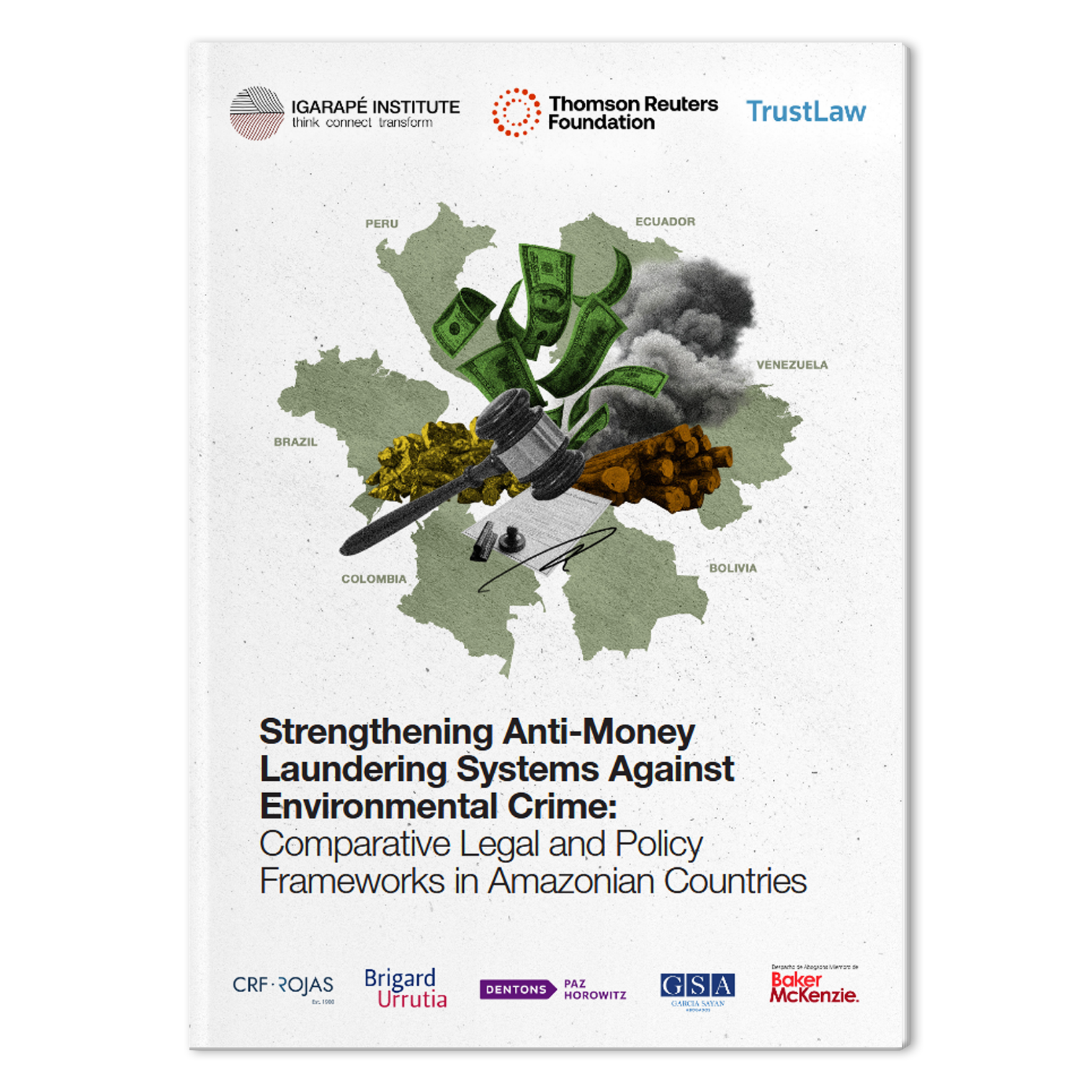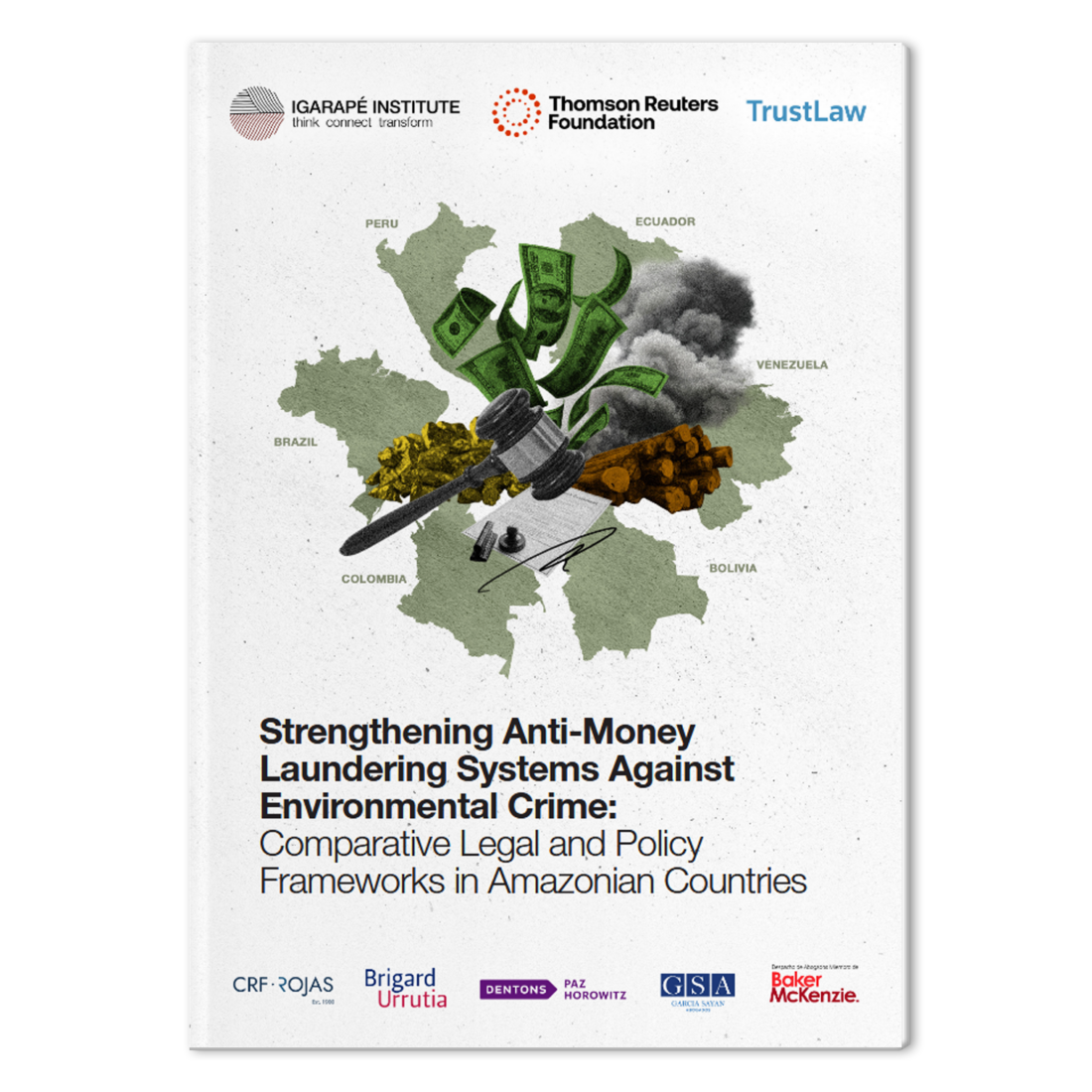Strengthening Anti-Money Laundering Systems Against Environmental Crime: Comparative Legal and Policy Frameworks in Amazonian Countries
 Environmental and natural resource-related crimes represent the third-largest illicit economy in the world in terms of the volume of money involved, ranking behind only drug trafficking and human trafficking. These are offenses that affect nature and threaten the planet’s sustainability, such as illegal logging, illicit crops, unauthorized agricultural expansion, illegal gold mining, and wildlife trafficking. These crimes are characterized by the insertion of illegally obtained natural resources into the formal economy — a process known as environmental asset laundering — which is estimated to move between US$110 and US$281 billion per year.
Environmental and natural resource-related crimes represent the third-largest illicit economy in the world in terms of the volume of money involved, ranking behind only drug trafficking and human trafficking. These are offenses that affect nature and threaten the planet’s sustainability, such as illegal logging, illicit crops, unauthorized agricultural expansion, illegal gold mining, and wildlife trafficking. These crimes are characterized by the insertion of illegally obtained natural resources into the formal economy — a process known as environmental asset laundering — which is estimated to move between US$110 and US$281 billion per year.
Given the diversity and complexity of the strategies used to conceal the illicit origin of these resources, anti-money laundering systems often face challenges in identifying the dynamics of environmental crime. This report analyzes how the legislation of six Amazon Basin countries — Bolivia, Brazil, Colombia, Ecuador, Peru, and Venezuela — defines environmental crimes and whether the entities required to report suspicious transactions to their national Financial Intelligence Units (FIUs) are adequately structured to address these crimes.
It is through the action of these reporting entities that the asset laundering enforcement system — including law enforcement agencies and public prosecutors — is activated. In general, legal frameworks follow two models: one that links asset laundering to a predefined set of criminal offenses (the so-called “predicate offenses”) and another that recognizes laundering of resources from any offense (“all-crimes model”).
The study is divided into two parts. The first examines whether the activities and professions most closely associated with the supply chains vulnerable to environmental and natural resource-related crimes in the Amazon are subject to mandatory suspicious transactions reporting. The second part assesses the application of anti-money laundering laws and asset recovery mechanisms. It also investigates whether national legal frameworks recognize money laundering as a crime associated with these offenses and whether they provide effective instruments for asset recovery in the context of such illicit activities.
The Igarapé Institute benefited from the pro bono collaboration of the law firms C. R. & F. Rojas – Abogados, Dentons Paz Horowitz, Brigard Urrutia, Baker McKenzie LLP, GSA Legal, and another partner law firm. These contributions were essential to the development of this legal research, carried out through the partnership with the Thomson Reuters Foundation’s TrustLaw network.
Read the publication
Learn more about this topic in the Strategic Paper 64 Dynamics of the Ecosystem of Environmental Crimes in the Brazilian Legal Amazon, and the study of the Follow the Money Series: Environmental Crimes and Illicit Economic Activities in Brazilian Amazon Production Chains



